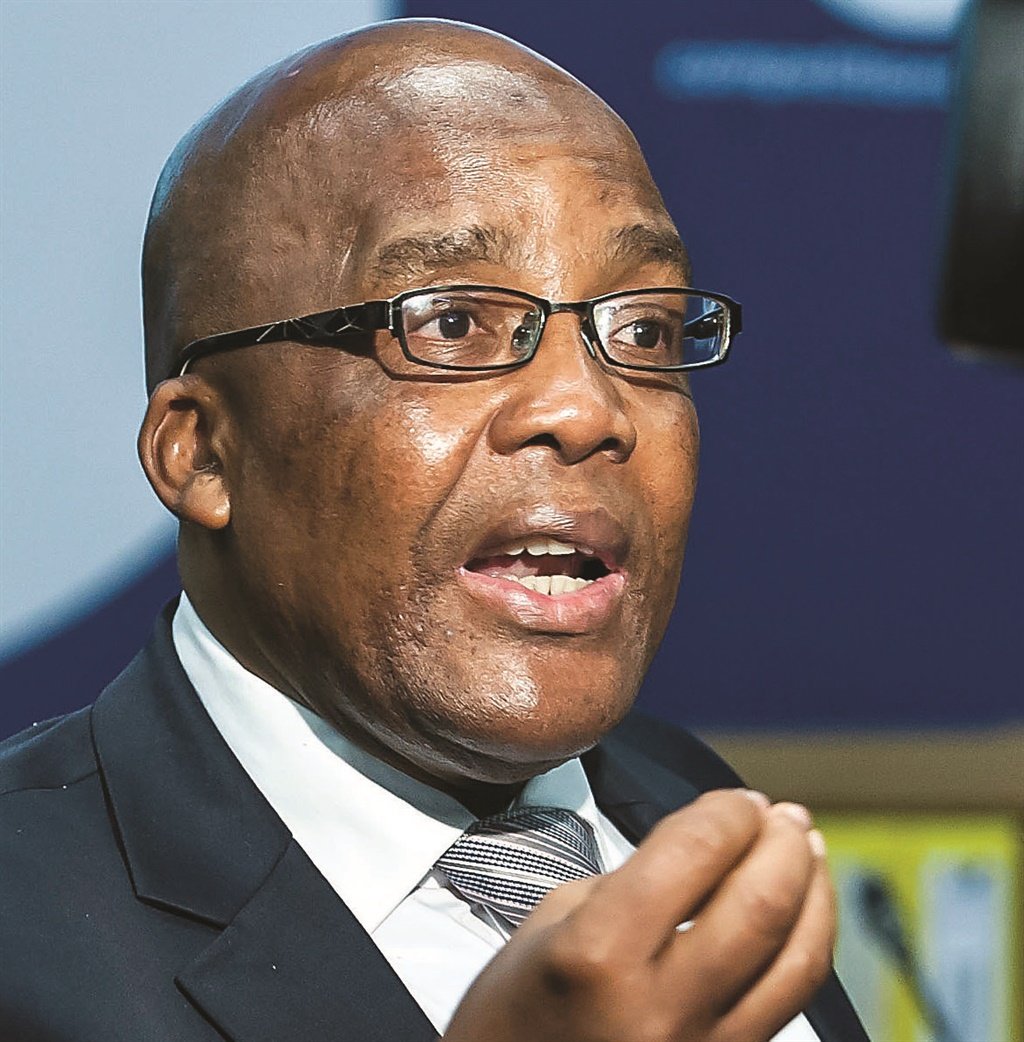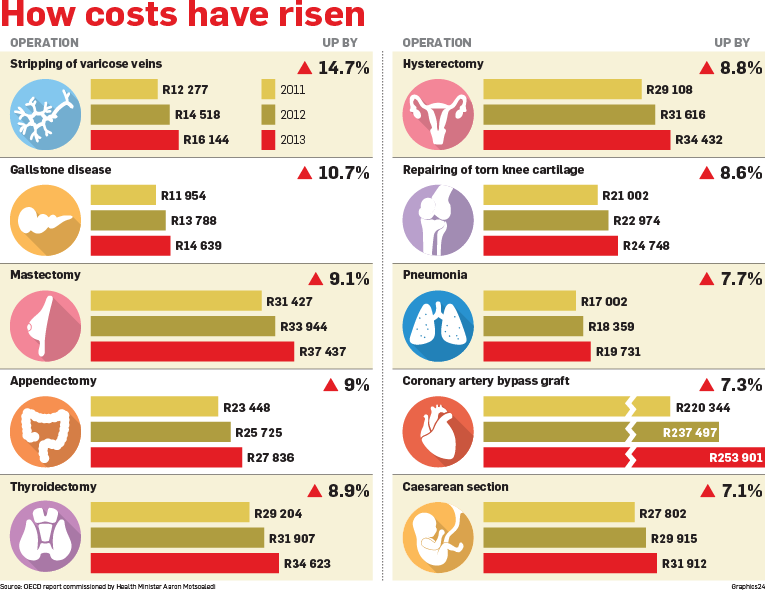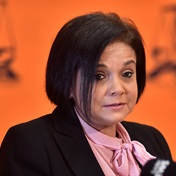
Private healthcare will cost South Africans a collective half a trillion rand a year in 12 years’ time if nothing is done to stop the price hikes they are subjected to by doctors and hospitals, says Health Minister Dr Aaron Motsoaledi.
Speaking to City Press last week after representatives of the World Health Organisation (WHO) and the Organisation for Economic Cooperation and Development (OECD) presented their submissions about the high cost of private healthcare in South Africa, Motsoaledi said: “This is what I have been telling South Africans all along, but nobody wants to listen to us.
“Private healthcare spending has increased by more than 300% in the past 12 years and if we calculate the future spend using the current increases, it will approach half a trillion rand,” he said.
Motsoaledi told City Press this was unacceptable and added: “Nowhere in the world does private healthcare cost this much. We are even higher than the US, which has a private healthcare spend of 35% [of total health spend].
“But what is better about the US is that this 35% healthcare spend serves 61% of the population, while in South Africa 42% of the total healthcare spend serves 16% of the population,” he explained.
Motsoaledi alleged private hospitals were planning to challenge the WHO and OECD report at the Competition Commission’s health market inquiry into private healthcare. The hearings, which began on Tuesday in Pretoria, form part of a lengthy probe into private healthcare.
“We have heard that private hospital lawyers are planning to bring in experts from the UK to come and rubbish the report. We are not surprised by this because they have done it before,” he said.
“Last year, they hauled the Competition Commission to court soon after the inquiry began. They spent R45 million in legal fees but lost the case.
“Now they see that the WHO and OECD have presented strong evidence about what we have been saying for years, they are bringing in British experts to come and challenge the integrity of this report,” he said.
Motsoaledi explained that the submission by the WHO and OECD was the “most impactful as the WHO is the ultimate authority in health and the OECD the ultimate authority in competition”.
The Hospital Association of SA (Hasa), which represents major hospital groups including Netcare – which led the case against the commission last year – denied this was their plan.
“Hasa has no knowledge of any experts being brought in from anywhere for the purposes alleged [by the minister],” said Melanie Da Costa, the chairperson of the association.
Da Costa said Hasa had noted the submission of a working paper commissioned by the department of health, and tabled by an OECD and WHO study group, to the health inquiry on Wednesday.
“Our initial response is to note that the paper uses data from some medical schemes that together represent only 60% of medical schemes in the country. We are, unfortunately, unable to ascertain which medical schemes these are, and whether they are managed by one or more of the medical scheme management companies,” she said.
“Secondly, in our view the paper is essentially an affordability study. It focuses on the affordability of private healthcare for all South Africans, not those on medical schemes.
“We believe the paper might also have looked at the affordability of private healthcare for people with jobs in addition to the affordability of private healthcare for the unemployed, which it seems was the paper’s focus.
“This would seem appropriate in a country that is acknowledged to embody both developed and developing economic characteristics and which has as wide a Gini coefficient [wealth gap] as ours,” Da Costa said.
The inquiry also received submission from several nongovernmental organisations – Section27, the SA Federation for Mental Health and the SA Depression and Anxiety Group – which all argued that private healthcare was very expensive in South Africa.
They called for regulation of healthcare prices, stating that private healthcare users were burdened by out-of-pocket payments because schemes don’t pay for the full amount doctors and hospitals charge.
According to the Council for Medical Schemes’ annual report released in 2014, scheme members paid R20.7 billion out of their pockets to cover the shortfall in their medical bills.
Last week, WHO and OECD representatives – scientists and economists Francesca Colombo, Tomas Roubal, Sarah Barber and Luca Lorenzi – presented their figures on the cost of private healthcare at the inquiry. They based their arguments on the findings of a study commissioned by the health department in 2014.
The representatives showed that private healthcare spending in South Africa was six times higher than the international average, and the highest among Brics countries (Brazil, Russia, India, China and South Africa).
They also revealed that total healthcare (public and private) expenditure amounted to R311 billion in 2013, 42% of which was used on 8.8 million medical aid scheme members.
In addition, the representatives showed South Africans stayed in hospitals for an average of 3.9 days compared with 5.1 days in OECD countries, and some common surgical procedures had increased by 14.7% between 2011 and 2013, forcing funders to increase medical aid premiums.
Who do you agree with, our health minister Dr Aaron Motsoaledi or the Hospital Association of SA – and why?
SMS us on 35697 using the keyword HEALTH and tell us what you think. Please include your name and province. SMSes cost R1.50




 Publications
Publications
 Partners
Partners









